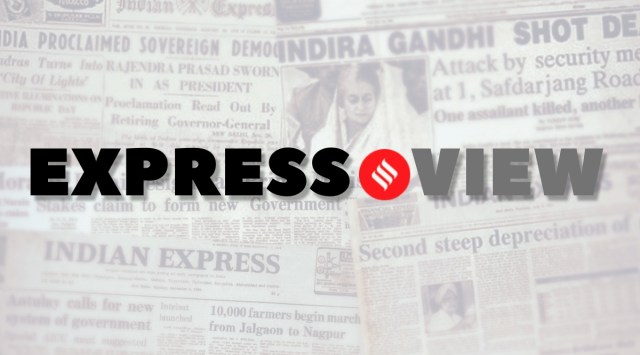
When it comes to China, faith tends to triumph over reason for a large section of the Indian strategic community. The prospect that Chinese President Xi Jinping might visit Delhi in September for the G20 summit has triggered unreasonable hopes for a breakthrough in bilateral relations. Optimists view Xi’s potential presence in Delhi — yet to be confirmed by Beijing — as an opportunity to end the current stalemate in bilateral relations that began with China’s aggression in Ladakh in the summer of 2020, which caused the death of several Indian soldiers. The optimism soared after last week’s meeting between National Security Adviser Ajit Doval and the top Chinese diplomat, Wang Yi, in Johannesburg on the margins of a BRICS forum. The reference in the Chinese statement issued after the meeting to the “Bali Consensus” between Modi and Xi on the need to “stabilise bilateral relations” and the confirmation by the South Block of parts of the conversation not disclosed earlier has triggered much excitement in Delhi.
This enthusiasm should be tempered by the fact that Modi and Xi barely chatted for a couple of minutes at the G20 dinner table in Bali, Indonesia, last November. Any claim that the two leaders agreed to settle the issues in the Ladakh frontier quickly reflects the wishful thinking that has been the hallmark of India’s traditional approach to China. Delhi was eager in the past to sweep serious differences under the carpet in the name of advancing bilateral relations or collaborating on global issues. The Modi government has made it clear, repeatedly, that there will be no return to business as usual unless Beijing restores peace and tranquillity on the border. Chinese officials, in contrast, have demanded that India must set aside the border issue and move forward with cooperation in other areas. Delhi has stuck to the line that the “state of the border reflects the state of the relationship”.
There is nothing to suggest that Modi will yield on this issue to please Xi. But might Xi “untie the knot” he tied in Galwan three summers ago? Delhi will surely welcome a decision by the People’s Liberation Army to walk back to the positions it held before May 2020. But Xi appears to be in no mood to compromise on territorial issues with China’s neighbours, including Japan, the Philippines, Vietnam, Taiwan, and India. Yet Xi’s diplomatic warriors put a positive spin on talks with the neighbours and claim progress where there is none. Swallowing Chinese disinformation, unfortunately, helps mask the deep contradictions hobbling the relationship. For those who can’t see the structural crisis in bilateral relations, there was a fresh reminder last week from the “stapled visas” that Beijing issued to Indian athletes from Arunachal Pradesh participating in World University Games in Chengdu, China. Beijing uses the stapled visas to assert its territorial claim over Arunachal Pradesh. Territorial sovereignty is at the heart of multiple disputes between Delhi and Beijing. The effort to manage these over the last several decades is undermined by the PLA’s aggressive military and political postures on the disputed frontier. It is up to Beijing to take the first steps to restore the shattered trust with Delhi. Until then, scepticism should colour India’s expectations of China.